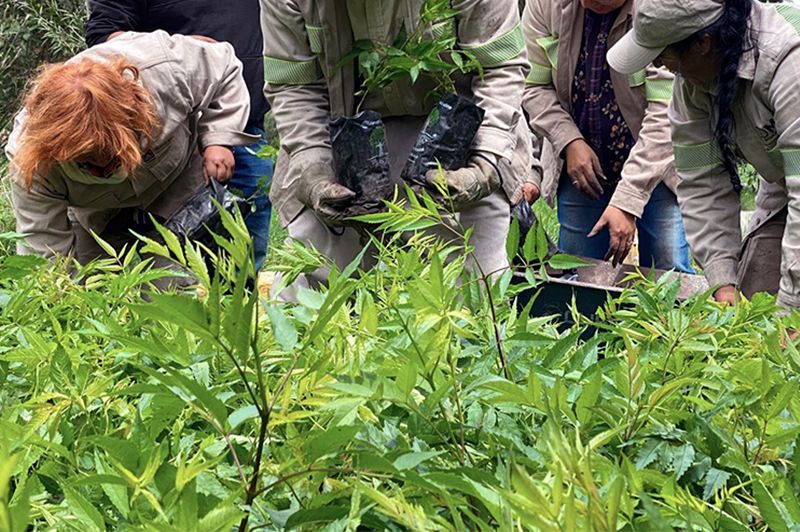The project "Articulating Global Agendas from the Local Level" aims to enable Mexico City and Colima to adapt to the effects of climate change.
07 July 2021, Mexico City. In July, more than 200,000 trees will be used to reforest different areas of Mexico City and the state of Colima, as part of the project "Articulating Global Agendas from the Local", a binational initiative implemented in Mexico by Pronatura Mexico Asociación Civil and in Brazil by the Associação Nacional de Municípios e Meio Ambiente (ANAMMA).
“These actions are part of a broader adaptation strategy in Tláhuac and Xochimilco in Mexico City, and Armería in the state of Colima, pilot sites where the project is present. The activities are carried out in coordination with local and state governments, civil society and the private sector," said Alejandra Tenorio, coordinator of Pronatura Mexico's project "Articulating Global Agendas from the Local"
Among the species to be used for revegetation are mesquite, tronadora, cedar and ash trees, which are plants that are adapted and resistant to the environment. The reforestation and care of these trees is intended to benefit the population of these areas by improving air quality and the landscape, promoting the recovery of microclimates and increasing biodiversity in Mexico City and the state of Colima. It will also help to reduce the risk of flooding by increasing water infiltration into the soil.
These actions are implemented with the participation of citizens and the Ecosystem-based Adaptation (EbA) approach, which allows for the incorporation of climate change adaptation measures that contribute to reducing the vulnerability of the population thanks to the sustainable use of natural resources that allow for the restoration of ecosystems and the conservation of biodiversity.
The organisations participating in this measure include, from Mexico City, the government of the municipality of Tláhuac and the Ministry of the Environment, as well as the Biozabu Cooperative in Xochimilco and the citizens of the municipality of Tláhuac. From the state of Colima, the state Environmental Institute, the government of the municipality of Armería and the inhabitants of the Ejido Cofradía de Juárez are participating. In addition, at the federal level, there is the participation of the Ministry of Welfare through the Sembrando Vida programme and the Grupo Mexico Foundation with the Mexicanos Sembrando programme, the institution that donated the trees.
The involvement of these diverse actors is an example of the successful articulation of different entities and levels for implementing actions in the fight against climate change in Mexico.
The project "Articulating Global Agendas from the Local" aims to increase local resilience by integrating the EbA approach in priority municipalities of Mexico and Brazil. This bi-national project is part of the Forests, Biodiversity and Ecosystems sector of EUROCLIMA+, a programme financed by the European Union and implemented by EF and GIZ. Find out more here.
About EUROCLIMA+
EUROCLIMA+ is a programme funded by the European Union and co-financed by the German Federal Government through the Federal Ministry for Economic Cooperation and Development (BMZ), as well as by the governments of France and Spain. Its objective is to reduce the impact of climate change and its effects in 18 Latin American and Caribbean countries by promoting climate change mitigation and adaptation, resilience and investment. The Programme is implemented under the synergistic work of seven agencies: the Spanish Agency for International Development Cooperation (AECID), the French Development Agency (AFD), the Economic Commission for Latin America and the Caribbean (ECLAC), Expertise France (EF), the International and Ibero-America Foundation for Administration and Public Policy (FIIAPP), the German Society for International Cooperation (GIZ), and the UN Environment Programme.
Contact for more information: This email address is being protected from spambots. You need JavaScript enabled to view it.

